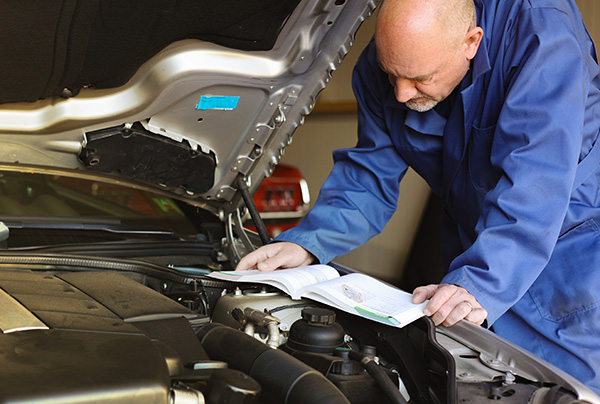Posted on 9/27/2024

Car maintenance isn’t something most of us enjoy thinking about, but it's one of those responsibilities you simply can’t ignore if you want your vehicle to stay in good shape. Whether you're driving a brand-new car or one that's been on the road for years, sticking to a regular service schedule is essential. One of the most important maintenance routines for any vehicle owner to follow is the 30k/60k/90k service plan. But what does this actually mean, and why is it so important? If you’ve ever wondered why your car manual suggests bringing your car in at these specific mileages, let’s explore what happens during a 30k/60k/90k service and how it helps ensure your vehicle stays reliable for the long haul. Understanding the 30k/60k/90k Service Milestones When you buy a car, the manufacturer sets certain service intervals designed to keep the vehicle running efficiently and safely. The 30k/60k/90k service plan follows these guidelines ... read more
Posted on 8/30/2024

Have you ever noticed that your car's performance seems to falter when driving through The Rocky Mountains? It's not just your imagination. Engines genuinely struggle at higher altitudes. Understanding why this happens can help you better prepare for trips and ensure your vehicle remains in optimal condition no matter where you drive. We'll explore the reasons behind this phenomenon and what you can do to mitigate its effects. The Science Behind Engine Power Loss The primary reason engines lose power at high altitudes boils down to one fundamental concept: air density. Air is composed of oxygen and other gasses, which are essential for combustion in internal combustion engines. As altitude increases, air pressure decreases, which means there's less oxygen available for the engine to mix with fuel. This reduction in oxygen leads to incomplete combustion, resulting in decreased power output. Oxygen and Combustion Engines rely on a pre ... read more
Posted on 7/26/2024

Driving is a daily activity for many, whether commuting to work, running errands, or embarking on a road trip. Amidst the convenience and necessity of driving, ensuring vehicle safety often takes a back seat. However, regular car safety inspections are crucial for maintaining roadworthiness, preventing accidents, and safeguarding both passengers and pedestrians. Why Car Safety Inspections Matter Car safety inspections are more than just a formality - they are a proactive measure to ensure your vehicle is in optimal condition. These inspections comprehensively assess various components, from brakes and tires to lights and fluids. By identifying potential issues early on, inspections help prevent mechanical failures that could lead to accidents on the road. Ensuring Roadworthiness One of the primary reasons for conducting regular safety inspections is to confirm ... read more
Posted on 6/11/2024

When it comes to motorsports, few events capture the raw essence of speed, skill, and sheer audacity, like the Pikes Peak International Hill Climb. Known as "The Race to the Clouds," this iconic race has been a proving ground for some of the world's best drivers and most innovative vehicles for over a century. With its treacherous turns, unpredictable weather, and breathtaking views, Pikes Peak stands as a testament to the relentless pursuit of automotive excellence. A Historical Overview The Pikes Peak International Hill Climb was first held in 1916, making it one of the oldest motorsport events in the United States. Conceived by entrepreneur Spencer Penrose to promote his newly built Pikes Peak Highway, the race quickly gained popularity and became a prestigious event in the racing calendar. Rea Lentz, driving a Romano Demon Special ... read more
Posted on 5/28/2024

In the heart of France lies a circuit revered by enthusiasts and drivers alike—a place where speed, endurance, and sheer determination converge to create motorsport magic. The 24 Hours of Le Mans is a testament to human ingenuity and automotive prowess, but how did this legendary event come to be? Origins of the 24 Hours of Le Mans The roots of the 24 Hours of Le Mans trace back to the early 20th century, a time when automotive innovation was at its zenith. In 1923, the Automobile Club de l'Ouest (ACO) envisioned a race that would push the boundaries of endurance, testing both man and machine to their limits. Thus, the inaugural 24 Hours of Le Mans was born, setting the stage for an unparalleled spectacle of speed and endurance. From Humble Beginnings to Global Spectacle Over the decades, Le Mans transformed from a local endurance challenge into a global phenomenon, captivating audiences worldwide. Iconic moments like the fierce rivalry b ... read more